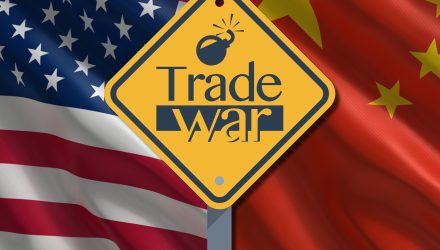Emerging market stocks, especially those tracking emerging Asia and related ETFs, were struggling to find their footing Thursday as uncertainty surrounding the U.S. trade policy fueled ongoing volatility.
The EGShares India Small Cap ETF (NYSEArca: SCIN) was among the worst performers Thursday, declining 2.1%. Additionally, the iShares MSCI Philippines ETF (NYSEArca: EPHE) fell 1.0%, iShares MSCI Indonesia ETF (NYSEArca: EIDO) dropped 1.4% and the VanEck Vectors Vietnam ETF (NYSEArca: VNM) declined 1.1%.
While U.S. equities struggled to push forward on Thursday, Asia emerging market equities continued to struggle. Traders remained unclear of the trade outlook as the White House appeared to step back from an all-out confrontation with China, the second biggest economy in the world, and adviser Larry Kudlow to later follow up saying that President Donald Trump was not softening his stance.
Related: Warning Signs for Large Emerging Markets ETF
“The volatility comes because we’ve seen some volatility in the trade talks and it just naturally moves over into the markets,” Chris Gaffney, president of TIAA Bank World Markets in St. Louis, said told Bloomberg. “Trade is one of the major things impacting emerging markets, it’s impacting all of the markets. But specifically on the emerging market rout, unfortunately there’s probably more to come.”
Emerging Currencies Exhibit Weakness
Furthermore, the ongoing weakness in emerging currencies also weighed on sentiment. While a weaker currency supports exports by making products more competitive in international markets, it also raises the price of imports, which is particularly harmful for countries that need to bring in money to pay off debts.
